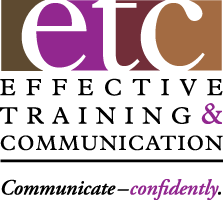Your routine workplace emails might suck if you ignore the reality that every note you send a customer, colleague or manager can project your image of professionalism, competency and courtesy – or detract from it.
So, if you don’t want your emails to suck, just avoid these worst practices.
* Not asking if everyone on a large distribution list really needs or wants to see this message.
* Retaining long strings of email addresses that precede your actual message.
* Using an ineffective subject line like ‘Report’ or, even worse, ‘no subject’.
* Writing long, rambling sentences and paragraphs with multiple key points that make your message difficult to read and digest in a hurry.
* Using ALL CAPS or all lower case in stead of proper capitalization.
* Including humor, sarcasm or slang that can be taken out of context, misinterpreted or appear unprofessional.
* Not using white space, bullets, sub-heads or other text breakers to make it easier for people to read your message … in a hurry.
* Sounding too formal or stuffy with a message that should be more casual and conversational.
* Attaching very long documents that could easily get caught in spam or security filters.
And your emails will definitely suck if you:
* Use ‘cc’ that displays a long distribution list instead of concealing the names with a ‘bcc’.
* Don’t keep it short and simple so the whole message can fit in a single screen without scrolling down
* Send your response to everyone because you hit ‘Reply All’ instead of ‘Reply to Sender’.
* Begin them with ‘Dear Bob … ‘ instead of simply using ‘Bob … ‘.
* Don’t proofread beyond auto-spell check and actually read your message twice before sending it.
* Fail to determine that an email is the best method for solving this particular communication need with this person or group and better than a text, phone call or face to face chat.
So, there you go – simple techniques to help you project a more positive, professional and courteous image and create emails that don’t suck. Your readers will notice and appreciate the difference.
(This article first appeared in the Greater Cleveland Partnership’s COSE (Council of Smaller Enterprises). ‘Mind Your Business’ eLetter in June.)
